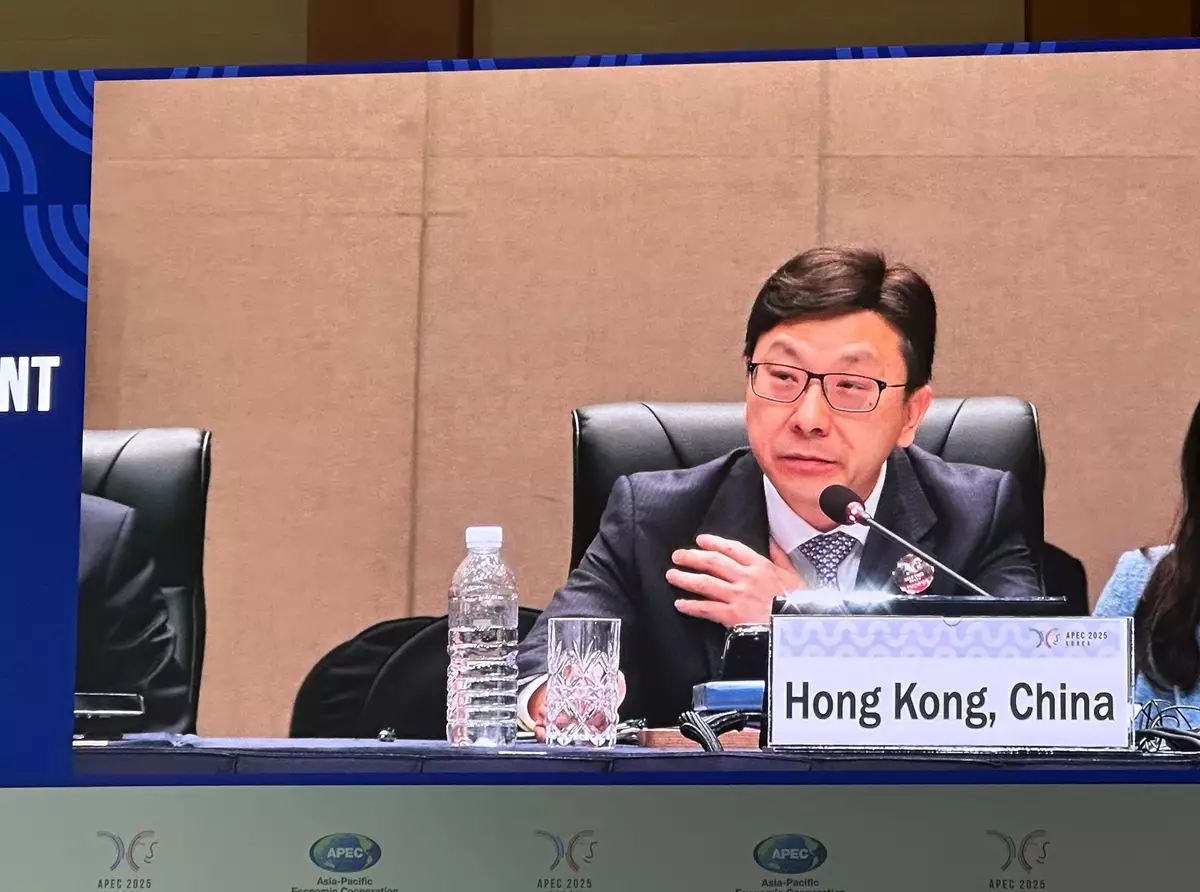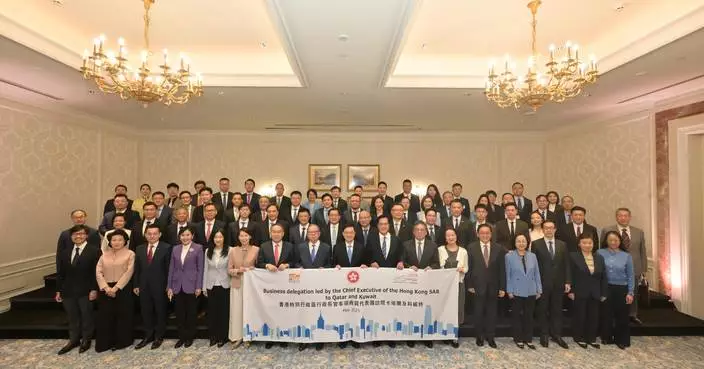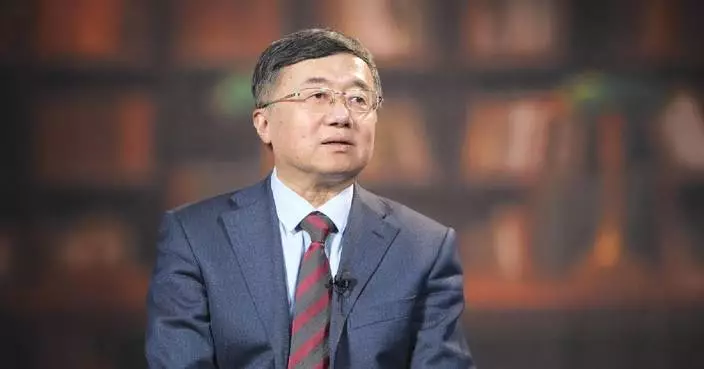Merchant Shipping (Safe and Environmentally Sound Recycling of Ships) Bill to be gazetted on Friday
The Merchant Shipping (Safe and Environmentally Sound Recycling of Ships) Bill will be published in the Gazette on Friday (March 21) to enact legislation to implement the Hong Kong International Convention for the Safe and Environmentally Sound Recycling of Ships, 2009 (HKC).
The HKC was adopted in Hong Kong, China on May 15, 2009, at the Diplomatic Conference of the International Maritime Organization (IMO) held in Hong Kong, China from May 11 to 15, 2009. It aims to ensure that ship recycling does not pose any unnecessary risk to human health, safety or the environment by addressing various issues in relation to ship recycling concerned by the IMO's member states and other relevant parties. It will enter into force globally on June 26, 2025. The Central People's Government is considering ratifying the HKC and will decide on the applicability of the HKC to the Hong Kong Special Administrative Region.
The HKC regulates both ships and ship recycling facilities. Although some objectives of the HKC align with those of the local legislation, existing provisions of the local legislation are not enough to fully implement the requirements of the HKC. A new ordinance with a new regulation will hence be enacted, with the new ordinance to be enacted first to ensure that it will be in place before the global entry-into-force date.
A spokesman for the Transport and Logistics Bureau said, "Hong Kong is the fourth largest shipping register in the world with more than 2 300 ships. We aim to ensure that these ships will fully comply with the requirements of the HKC, which is conducive to promoting sustainable development for ships that have reached the end of their operating life and protection of workers and the environment in the context of ship recycling. We believe the shipping industry and the public will welcome the enactment of such a Bill."
The Panel on Economic Development of the Legislative Council (LegCo) and the Hong Kong Fleet Operation Advisory Committee have been consulted. Members supported the proposal.
The Bill will be introduced into the LegCo on March 26.
Speech by SLW at plenary session of Seventh APEC Human Resources Development Ministerial Meeting
Following is the speech by the Secretary for Labour and Welfare, Mr Chris Sun, at the plenary session themed "Flexible and Vibrant Labour Market" at the SeventhAsia-Pacific Economic Cooperation (APEC) Human Resources Development Ministerial Meeting in Jeju, Korea, today (May 12):
Good morning, chair and distinguished fellow Ministers.
Let me start off first of all by expressing my heartfelt gratitude to Korea for your warm hospitality and the very thoughtful arrangement over every detail this meeting. Flexibility and vibrancy have long been embedded in the DNA of Hong Kong, China. However, in the face of changing landscapes, we cannot stand still and must evolve and improve.
In a world where social media and artificial intelligence keep on reshaping the scope and meaning of work, it is all the more important for policymakers to focus on making employment more flexible, boosting labour productivity, and putting in place sustainable protection for workers. Today I will highlight Hong Kong, China's initiatives to address the challenges posed by the platform economy, and our efforts to enhance protection for employees across various sectors.
The platform economy is developing rapidly around the world. In Hong Kong, China, platform workers engaging in food and goods delivery services are common. Similar to other economies, their mode of co-operation with platform providers involves complex and various modes of work, which are not entirely akin to the traditional employment relationship.
Hong Kong, China attaches great importance to protecting the rights and benefits of platform workers. We have set up a tripartite liaison group to explore possible measures for strengthening protection for platform workers in collaboration with platform companies and labour organisations. We are glad to see that members of the liaison group are working together to forge consensus. The general directions are to enhance communication between platform companies and workers, increase the level of compensation for work-related accidents, and crack down on illegal workers. The aim is to enhance protection for platform workers through tripartite consultation while at the same time facilitating the sustainable development of the industry to achieve win-win outcome.
In parallel, the Government of Hong Kong, China has conducted a thematic household survey to collect major data of local platform workers. We have also conducted an opinion survey and focus groups among platform workers. Platform workers in Hong Kong, China are mostly concerned about the protection for work-related accidents and urged platform providers to provide them with protection comparable to the work injury compensation offered to employees in general. Capitalising on the work of the liaison group and the survey findings, we will map out the way forward within this year and enact necessary legislation once we have decided on the direction.
At the same time, we are addressing broad concerns through refining the scope of the Employment Ordinance in Hong Kong, China. At present, all employees covered by the Employment Ordinance are entitled to basic protection, including wage payment and granting of statutory holidays. Employees who are employed under a continuous contract are further entitled to benefits such as holiday pay, paid annual leave, sickness allowance, maternity leave, etc.
Under the current law, an employee is required to work at least 18 hours a week for four weeks in a row so as to remain engaged in continuous contract. This means an employee who occasionally works less than 18 hours in a week will fall short of the continuous contract requirement.
We have recently introduced legislative amendment to revise the threshold of the continuous contract requirement. First of all, we lower the weekly work hour threshold from 18 to 17 hours. More importantly, we make it clear that even if an employee works less than 17 hours a week, the continuous contract still remains valid if the aggregate work hours reach 68 hours or more in a designated four week period including the week in issue.
We expect that the legislative amendment will soon be passed into law. The expanded coverage of continuous contract will enable more employees with shorter and flexible work hours to enjoy full employment benefits. We believe the relaxation will also encourage more people to join the labour market.
Hong Kong, China is facing a shrinking workforce against our ageing population. To sustain the development of our workforce, we have been incentivising older people to rejoin the labour market and employers to hire older people.
First of all, we have introduced a Re-employment Allowance Pilot Scheme for three years. The aim is to encourage persons aged 40 or above who have not been employed for three months or more to work again. Eligible participants will be given an allowance of HK$10,000, which is equivalent to around US$1,300, if they remain employed for six months in a row. If they remain employed for a full year, they will receive an additional allowance of HK$10,000. Up to March this year we have received 38 000 participants with 16 000 placements recorded.
Turning to employers, we are rewarding those who hire and provide on-the-job training to older people. Eligible employers will receive a monthly allowance of HK$5,000 per employee per month for six to 12 months if they hire persons aged 60 or above. A smaller allowance and shorter period will be given to those employing persons aged 40 to 59.
To conclude, Hong Kong, China remains steadfast in its commitment to enhance the protection for the workforce and raise labour productivity. We will continue to explore innovative solutions and engage in meaningful and pragmatic dialogue with all stakeholders to create a fair and equitable labour market that empowers all individuals to thrive.
Thank you.

Speech by SLW at plenary session of Seventh APEC Human Resources Development Ministerial Meeting Source: HKSAR Government Press Releases


















































